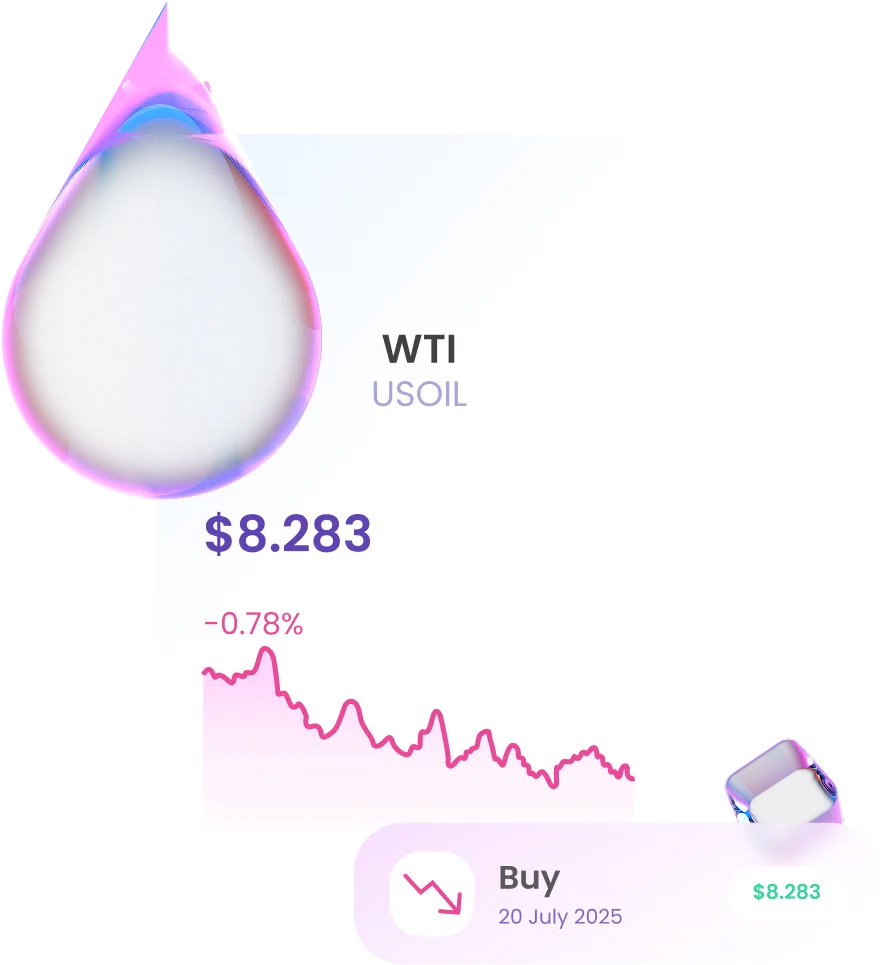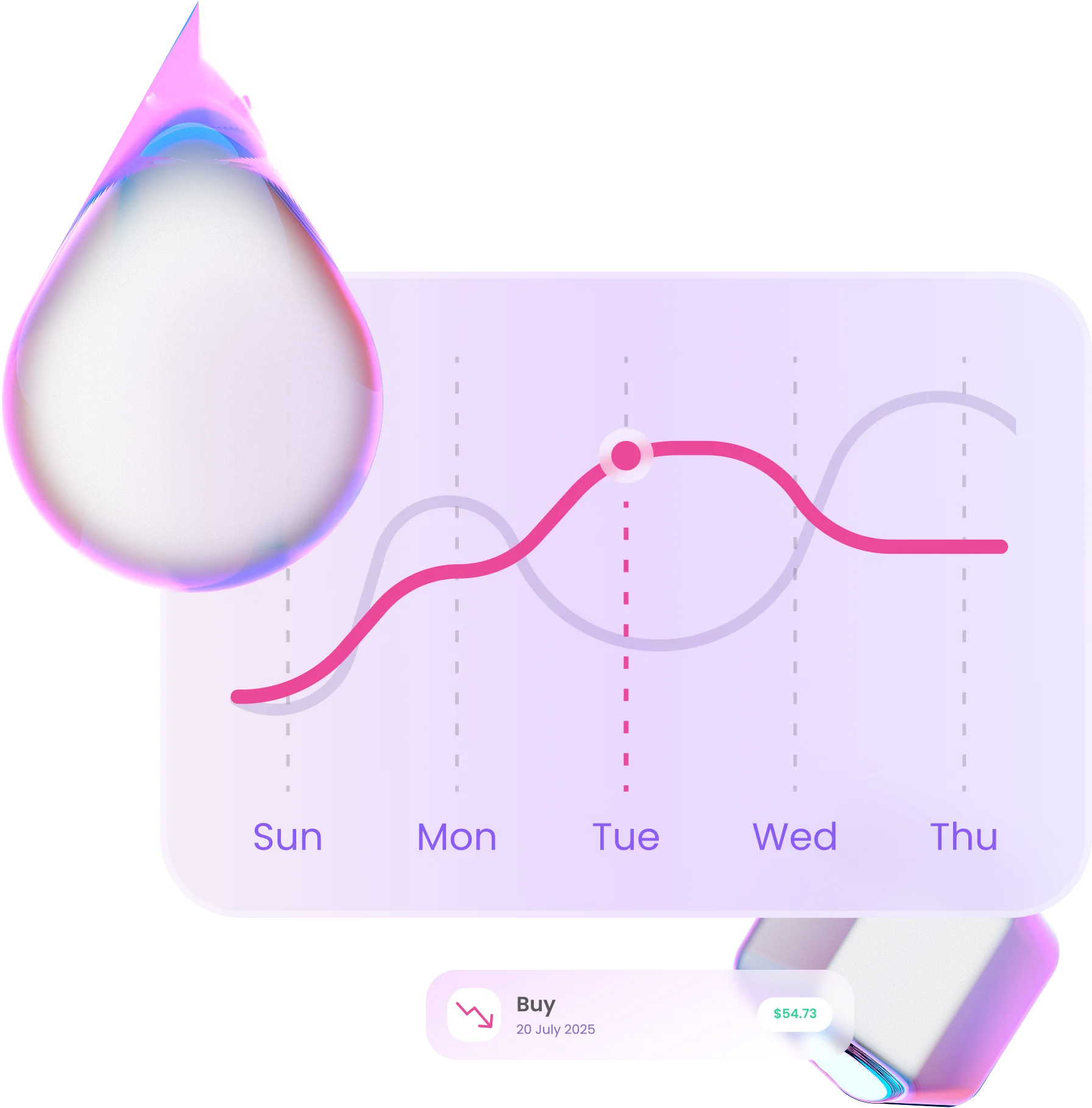Crude Oil
Crude oil is one of the most important and most actively traded commodities in the world. Its price has a significant impact on the global economy, making it a compelling yet complex trading instrument. At Traze, your focus will be on trading WTI Crude Oil.


Why Trade Crude Oil with Traze?
- Global Impact: Crude oil is one of the world’s primary energy sources, influencing nearly every sector of the economy—from transportation to manufacturing.
- High Volatility: Crude oil prices can move rapidly and significantly in response to global events, economic data, and shifts in supply and demand. This creates numerous opportunities for traders.
- WTI Crude Focus: At Traze, you specifically trade WTI Crude—one of the most liquid and globally recognized types of crude oil—allowing focused analysis on a major market benchmark.
- Portfolio Diversification: Adding crude oil to your trading portfolio helps diversify your exposure, as oil prices often behave differently from other assets like stocks.
- Economic Health Indicator: Crude oil prices are often seen as a reflection of global economic health. Strong economic growth typically increases demand for oil.

Factors That Affect Crude Oil Prices
Traze traders should understand the following key factors that can influence oil prices:
- Global Supply and Demand: This is the primary driver. Slowing economic growth may reduce demand, while geopolitical conflict or natural disasters can restrict supply.
- OPEC+ Production Decisions: The Organization of the Petroleum Exporting Countries and its allies (OPEC+) have a major influence on global oil supply. Their decisions directly impact crude prices.
- US Oil Inventories: Weekly data on US oil stockpiles (especially from the EIA reports) can lead to sharp price crude oil movements.
- Geopolitical Tensions: Instability in major oil-producing regions (like the Middle East), armed conflict, or sanctions can disrupt supply and push crude oil prices higher.
- US Dollar Strength: Since crude oil is priced in USD, a stronger dollar makes oil more expensive for other currencies, potentially lowering demand.
- Technological Developments & Alternative Energy: Innovations in renewable energy or improvements in fuel efficiency may affect long-term crude oil demand.
Who Should Trade Crude Oil with Traze?
Crude oil trading is best suited for traders who have a solid understanding of macroeconomics, geopolitics, and energy market dynamics. Traders should be prepared for high volatility and have strong risk management strategies to capitalize on available opportunities.
About Crude Oil Trading
Crude oil trading on Traze involves buying and selling oil contracts through our platform with the goal of profiting from price movements in the global energy market. At Traze, the available product is WTI Crude Oil—one of the key benchmarks in the US market.
Traze focuses on offering a benchmark-grade crude oil widely recognized for its quality—light and sweet—making it a standard in the US market. This gives traders a highly liquid and globally relevant instrument to analyze and trade.
Crude oil is highly volatile because it is influenced by a wide range of dynamic factors: global supply and demand, OPEC+ decisions, geopolitical events (such as conflicts in oil-producing regions), US inventory data, and fluctuations in the US dollar. Traze traders must be ready for sharp price movements.
OPEC+ is a coalition of oil-producing countries including OPEC members and allies like Russia. They control a significant portion of global oil supply, and their decisions on production quotas have an immediate and direct impact on global oil prices—reflected in the prices shown on Traze.
Crude oil trading can be complex due to high volatility and the number of factors driving price changes. It is not recommended for beginners without a strong understanding of the energy market and solid risk management strategies. Traze provides a demo account and a wide range of educational resources, which are highly recommended before trading with real money.

